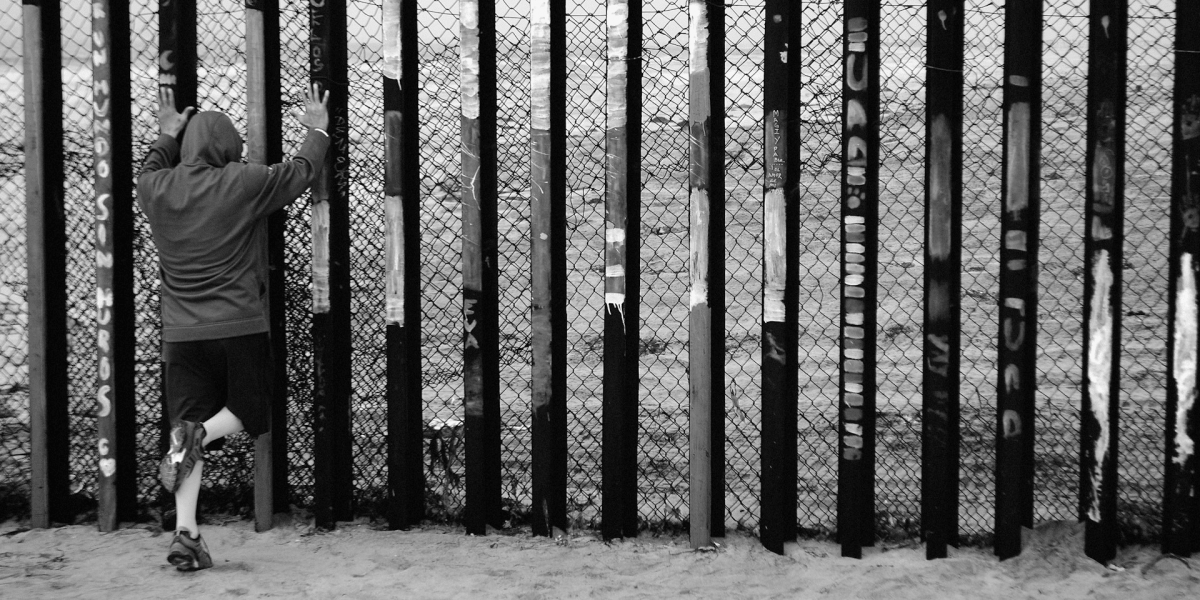Border issues have remained a central and contentious topic in US politics for decades. From debates over immigration reform to concerns about national security and humanitarian crises, the challenges at the US-Mexico border influence elections, shape public opinion, and drive legislative battles. In 2024, these issues continue to divide political parties, affect US foreign relations, and impact state-level policies, making border security and immigration hot-button topics in the political landscape.
Political Polarization on Border Policy
Border policies have long been a source of political polarization in the US, with Democrats and Republicans holding starkly different views on how to address border security and immigration. Republicans typically advocate for stricter border enforcement, increased funding for border patrol, and the construction of physical barriers, such as the controversial border wall initiated under the Trump administration. They argue that stronger border security is essential to protect national interests, prevent illegal immigration, and reduce crime.
On the other hand, Democrats generally focus on immigration reform that emphasizes compassion for migrants, a pathway to citizenship for undocumented individuals, and the protection of asylum seekers. This approach includes addressing the root causes of migration from Central and South American countries. The differing ideologies between the two parties have created a legislative stalemate on comprehensive immigration reform, with both sides struggling to find common ground.
Immigration Reform and Legislation
The debate over comprehensive immigration reform continues to dominate US politics, as lawmakers attempt to address key issues such as Deferred Action for Childhood Arrivals (DACA), visa programs, and paths to citizenship for undocumented individuals. The issue of DACA, in particular, has been a point of contention, with Democrats pushing to protect “Dreamers” (undocumented immigrants who were brought to the US as children) and provide them with legal status.
However, partisan gridlock in Congress has repeatedly stalled efforts to pass meaningful immigration legislation. Republicans often resist policies they view as providing “amnesty” to undocumented immigrants, while Democrats push for more humane and inclusive approaches. As a result, immigration reform remains a politically charged issue that is unlikely to be resolved without bipartisan cooperation.
Impact of Border Security on National Security
National security concerns are frequently cited in the debate over border policies. Issues such as terrorism, drug trafficking, and human trafficking have led to calls for increased militarization and investment in border patrol operations. Advocates of stricter border security argue that a well-secured border is crucial for protecting the country from external threats, including organized crime syndicates that exploit porous borders to smuggle drugs and human beings into the US.
In response, the US government has invested in a range of technological solutions to improve border management. Surveillance drones, biometric systems, and advanced monitoring technologies have been deployed along the US-Mexico border to prevent illegal crossings and improve border patrol efficiency. However, these measures have also sparked debates over privacy rights and the ethical implications of such technologies.
Economic Implications
Border issues have significant economic implications for the US. Many industries, particularly agriculture, construction, and the service sector, rely on immigrant labor, both documented and undocumented. For these industries, strict border policies can result in labor shortages, increasing the cost of goods and services. Employers who depend on seasonal migrant workers may find it difficult to maintain their workforce if immigration policies become more restrictive.
At the same time, the cost of border enforcement is substantial. The construction of physical barriers, like the border wall, and the maintenance of border patrol operations require billions of dollars in federal funding. This has led to concerns about the financial sustainability of border security programs, particularly when weighed against other national priorities.
Additionally, trade relations with Mexico are heavily influenced by border policies. Disruptions to cross-border commerce due to stricter enforcement or diplomatic tensions can harm the economies of border states, particularly Texas, California, and Arizona, which rely on trade with Mexico for economic growth.
Humanitarian and Ethical Concerns
One of the most pressing aspects of the border issue is the humanitarian crisis that has unfolded in recent years. The treatment of asylum seekers, many of whom flee violence and persecution in their home countries, has become a focal point of debate. Controversial policies, such as family separation and the detention of children in overcrowded facilities, have sparked widespread outrage and condemnation.
Advocates for immigrant rights argue that current border policies violate international laws regarding the treatment of refugees and asylum seekers. Human rights organizations have called for the US government to adopt more humane approaches to immigration enforcement, emphasizing the need for better conditions in detention centers and fair treatment of those seeking asylum.
State-Level Impacts
Border states such as Texas, Arizona, and California are at the forefront of the border issue, often bearing the brunt of federal immigration policies. These states have their own state-level policies and programs to either support immigrant communities or enforce stricter border controls. Texas, for instance, has taken a hardline stance on immigration enforcement, with state leaders frequently clashing with federal policies.
Legal challenges from states regarding federal immigration laws are common. For example, state governments may file lawsuits against the federal government over issues like DACA, sanctuary city policies, and border wall funding. These legal battles further complicate the already contentious issue of immigration reform and border security.
Public Opinion and Voter Concerns
Immigration remains a key issue for voters, particularly in swing states where the electorate is divided on border policies. The media portrayal of border crises, such as migrant caravans or overcrowded detention centers, plays a significant role in shaping public opinion. News outlets and social media frequently amplify the narrative around the border, influencing how voters perceive the actions of political leaders.
Voter concerns about immigration often reflect broader fears about demographic changes in the US. As the country becomes more diverse, immigration policies and their potential impact on the makeup of the electorate have become increasingly important in political debates. Both political parties are aware of the influence border issues have on voter turnout and campaign strategies.
Foreign Relations and Border Policy
US relations with Mexico and other Central American countries are closely tied to border issues. The US has long provided foreign aid to countries like Honduras, El Salvador, and Guatemala in an effort to curb migration by addressing the root causes of poverty, violence, and corruption in those countries.
Bilateral negotiations between the US and Mexico often center on border control and migration management. The success of these negotiations is critical for ensuring cooperation on immigration policies, border security, and trade agreements. Any breakdown in diplomatic relations could lead to increased tensions and exacerbate the challenges at the border.
The Role of Technology in Border Control
Technology plays an increasingly important role in modern border control efforts. Tools such as drones, biometric systems, and digital surveillance help monitor the border and prevent illegal crossings. The use of technology allows border patrol agencies to secure larger stretches of the border with fewer physical barriers, but it also raises concerns about privacy rights and government overreach.
Expanding the use of virtual borders through advanced monitoring technologies is seen by some as a more cost-effective and humane solution compared to physical barriers. However, the deployment of such technology is not without its critics, who argue that it can lead to civil liberties violations and an over-militarized border.
Historical Context of US Border Issues
The history of US border policy is marked by fluctuating approaches to immigration and enforcement. Decades ago, open borders were more common, with fewer restrictions on movement between the US and its neighbors. However, over time, rising concerns about national security, economic stability, and illegal immigration led to the implementation of stricter enforcement policies.
Major events such as the 9/11 attacks, economic downturns, and political shifts have all contributed to the current landscape of border politics. Understanding this historical context is crucial for analyzing the current challenges and debates surrounding the US border.
Border issues continue to sway US politics, dividing political parties, influencing voter behavior, and shaping national security policies. As lawmakers grapple with the complexities of immigration reform, economic implications, and humanitarian concerns, the future of US border policy remains uncertain. However, one thing is clear: border issues will continue to be a defining feature of the political landscape for years to come.







